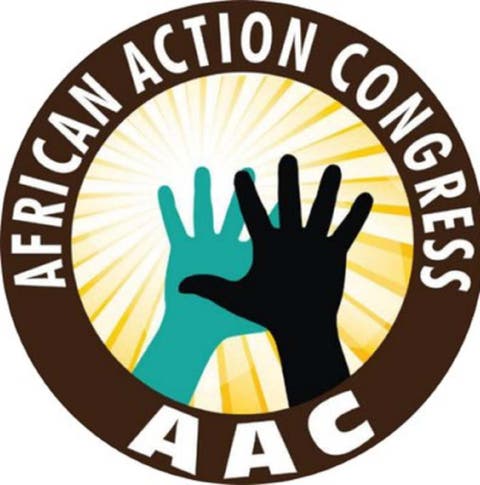The African Action Congress (AAC) has issued a strong call for the immediate withdrawal of what it terms as excessive and arbitrary charges imposed on candidates participating in the forthcoming Local Government Area (LGA) elections in Benue State, set for 5th October 2024.
The party has raised concerns over the financial barriers that these charges pose, which could potentially disenfranchise candidates who lack substantial financial resources.
According to the AAC, the Benue State Independent Electoral Commission (BSIEC) has levied steep fees on political aspirants, demanding that chairmanship candidates pay a sum of N500,000, while councillorship candidates are required to pay N250,000.

In addition to these significant fees, BSIEC has also introduced handling charges of N115,000 for chairmanship candidates and N90,000 for councillorship candidates.
These costs, the AAC argues, are not only exorbitant but also undermine the principles of fair competition and inclusive democracy.
In a statement released by the AAC Chairman, Rex I. Elanu, the party expressed its strong opposition to these financial demands and called upon Benue State Governor, Rev. Fr. Hyacinth Alia, to intervene and ensure the immediate revocation of these charges.
Elanu described the fees as an “unruly extortion” and a deliberate attempt to skew the democratic process in favour of the financially privileged.
He emphasised that such practices are counterproductive to the ideals of equity and transparency that are supposed to govern electoral processes.
“It has become necessary to address and oppose the counter-democratic ploy of the ruling APC in Benue State towards the forthcoming LGA elections.
These charges are set up to discourage candidates who are not financially privileged from participating in the elections,” Elanu stated.
The AAC’s stance is clear: the imposition of such high fees constitutes a significant barrier to entry for many potential candidates, thereby limiting the diversity and representation that are crucial to a healthy democratic system.
The AAC’s criticism extends to the ruling All Progressives Congress (APC), accusing the party of perpetuating a system where political participation is accessible only to the wealthy.
This, they argue, is starkly contrasted with the AAC’s own approach, which offers free nomination forms to its candidates as a way to encourage broader participation in the political process.
The AAC believes that the high cost of politics in Nigeria is a major impediment to the emergence of new and diverse leaders, and that steps must be taken to reduce these financial barriers.
The AAC’s statement further urges Governor Alia to act decisively in the interest of democracy and fairness.
Elanu implored the governor to use his authority to ensure that all candidates, regardless of their financial background, are given a fair chance to participate in the upcoming elections.
“We call on Governor Alia to act in the spirit of fairness and democracy, ensuring that all candidates, regardless of financial status, have a level playing field in the upcoming elections,” Elanu added.
This appeal reflects the AAC’s broader commitment to fostering a more inclusive political landscape, where opportunities for leadership are not dictated by one’s financial capacity.
The issue of high nomination fees and other related charges has long been a contentious one in Nigerian politics.
Critics argue that such fees serve as a gatekeeping mechanism, effectively excluding a significant portion of the population from participating in governance.
This concern is not unique to Benue State; across Nigeria, political parties and electoral bodies have been criticised for imposing hefty fees that are beyond the reach of average citizens, thereby perpetuating a cycle of elitism and reducing the pool of potential leaders.
The AAC’s call to action underscores the need for reforms that prioritise accessibility and inclusivity in the electoral process.
The party’s stance is that the cost of running for office should not be a prohibitive factor for anyone who wishes to serve their community.
By challenging the current system and advocating for a removal of these charges, the AAC aims to pave the way for a more equitable political environment, one in which every qualified citizen, regardless of their financial means, can aspire to hold public office.
This issue also highlights the broader debate about the role of money in politics and the impact it has on democratic participation.
The AAC’s criticism of the APC’s financial policies is part of a larger narrative about the need to decouple financial power from political influence, ensuring that leadership opportunities are open to all, not just the wealthy few.
As the date for the LGA elections approaches, it remains to be seen how the Benue State government and the BSIEC will respond to these calls for change.
In conclusion, the AAC’s demand for the withdrawal of excessive charges in the Benue LGA elections is not just a critique of current practices but a call for a more inclusive and democratic electoral process.
By advocating for the removal of financial barriers, the AAC is championing a vision of politics that is accessible to all, ensuring that the democratic process truly reflects the diverse voices and aspirations of the Nigerian people.
Support InfoStride News' Credible Journalism: Only credible journalism can guarantee a fair, accountable and transparent society, including democracy and government. It involves a lot of efforts and money. We need your support. Click here to Donate
